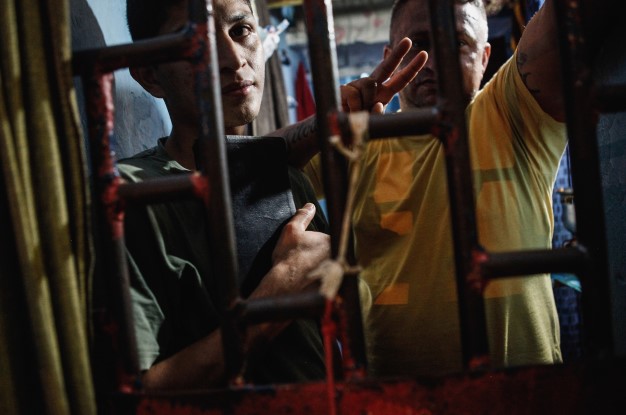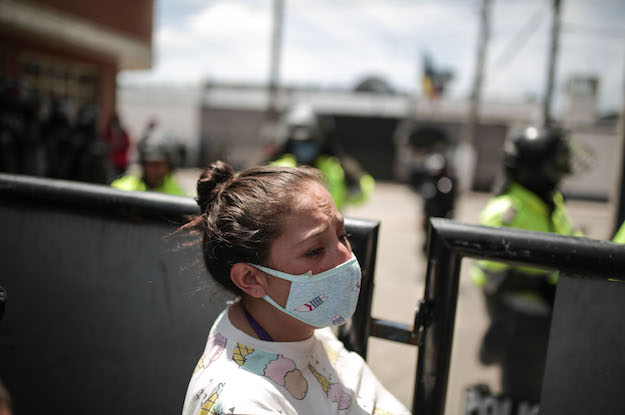For decades, Brazil’s gangs have expanded their territory and evolved from their humble roots to become the sophisticated criminal organizations they are today, capable of penetrating heavily fortified targets and carrying out complex operations. President Jair Bolsonaro’s promise to combat this threat won him the votes of millions of Brazilians last October. As President, he will have to focus on pragmatic policy solutions aimed at funding necessary security measures, reforming prisons, and fostering cooperative relationships with regional governments.
To address the crime epidemic, Minister for Justice and Public Security Sérgio Moro introduced a wide-ranging crime bill that, for the first time, acknowledged the largest criminal groups by name. His proposal would lengthen prison sentences for particular crimes, allow plea bargains as a prosecutorial tool, and tighten laws against money laundering, but that bill is still in its early stages in the house of representatives.
In the meantime, the Primeiro Comando da Capital (PCC), Brazil’s dominant criminal group with an estimated 30,000 members, controls key territory in major cities and large swaths in rural areas, as well as parts of Paraguay, Bolivia, and beyond. It is estimated that the PCC derives up to $200 million annually from drug trafficking, robberies, and extortion.
What comes first?
Bolsonaro should begin his push to dismantle the PCC where it all started: in Brazil’s prisons. Even if Moro’s crime bill were to pass, prisons will remain a bastion for Brazilian gangs. A deadly mix of overcrowding and underfunding, enables jailed gang members to coordinate gang operations from within prison cells. While the Bolsonaro government is taking some logical steps to disrupt this practice, more needs to be done. Brazil needs new and more secure prison facilities to reduce overcrowding, as well as criminal justice reform that decreases the flow of non-violent, first-time offenders into fertile recruiting grounds for the PCC and other groups. (One-third of Brazil’s prison population is incarcerated for drug-related crimes.)
Despite decades of PCC activity, the Brazilian police do not appear any closer to appreciating its vast operations or understanding its organizational structure. Worse, Brazilian politicians going back to President Fernando Henrique Cardoso, have neglected the issue, even denying the existence of the PCC threat—this, despite an environment characterized by hundreds of devastating attacks, including political assassinations, car bombings, and deadly prison riots.
Second, additional resources for underfunded state security forces should to come from savings derived from passing the hotly-debated pension reform. Currently, pensions consume half of the federal budget, leaving precious little for an increase in discretionary spending to combat the explosive growth of organized crime. Addressing funding challenges will also require greater coordination between the federal and state governments.
Lastly, President Bolsonaro should leverage his new relationship with President Trump, and use the U.S.-Brazil Permanent Security Forum, a bilateral vehicle facilitating cooperation on transnational security issues, to induce practical collaboration on security challenges. The two countries could share best practices with respect to border patrol, prison security, and combating money laundering; provide data and technology to monitor cross-border flows; and in rare instances, even perform joint reconnaissance flights to help identify clandestine drug laboratories and PCC redoubts along the border.
Operating from rural, stateless spaces along the porous border, the PCC has managed to evangelize in Paraguayan and Bolivian prisons where their ironic motto of “peace, justice, and liberty” has found a receptive audience and showing the problem requires international collaboration.
All of these measures could bolster a number of ongoing intelligence gathering programs Brazil has spearheaded to address its border, which is three times the length of the U.S.-Mexico border. Once fully operational, the U.S.-Brazil Security Forum could seek to collaborate with other regional governments also in the PCC’s crosshairs, such as Paraguay.
The ambitious promises of candidate Bolsonaro to end the epidemic of violence and loosen the stranglehold of Brazil’s brutal gangs helped elevate him to the presidency. Now, he must follow through by developing a practical and comprehensive plan to break the back of organized crime. Without such efforts, Bolsonaro may join his predecessors by completing his term confronted by an even more dominant and global PCC.
—
Berg is a Latin America Research Fellow at the American Enterprise Institute (AEI); Martínez-Fernandez is a Latin American Research Analyst at AEI







